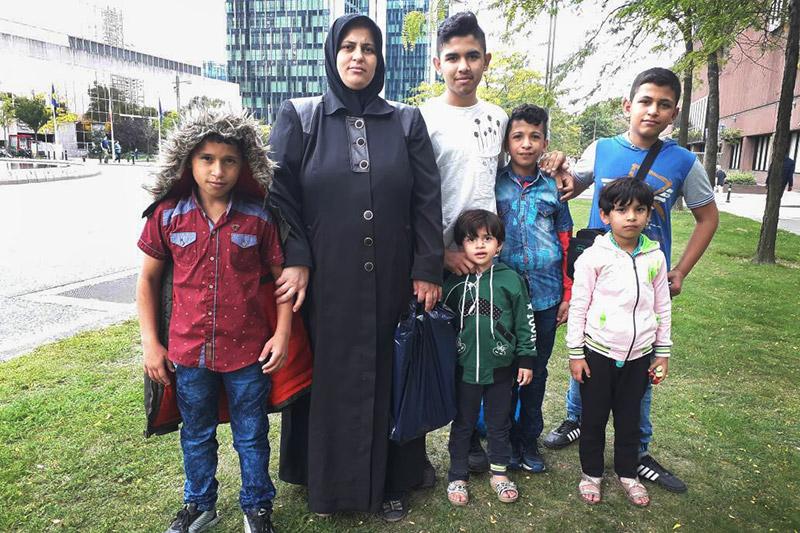Alumnus reunites families separated by crisis
As the co-founder of nonprofit organization Miles4Migrants, Seth Stanton helps to reunite families who have been separated by the worldwide refugee crisis.
The 2003 School of Science and Engineering graduate, who works as an optometrist in New Orleans, originally hatched the idea for the organization when he stumbled across a post on a Reddit message board for collectors of frequent-flyer miles.
While scrolling through stories detailing how people spent their mileage on luxurious trips, Stanton read a post written by Nick Ruiz, which said, “I used my American Airlines miles to reunite a Pakistani refugee family.”
“We're now at 38 million frequent flyer miles pledged, which is pretty incredible.”
Seth Stanton
“I was intrigued immediately, so I started talking to Nick and we decided to make an organization based on that concept,” said Stanton.
Miles4Migrants uses donated airline miles to help relocate those displaced by war or persecution. The organization works with nonprofits to identify refugees who have financial needs and have been legally approved to travel for migration or family reunification.
Stanton and Ruiz coordinate Miles4Migrants with fellow directors Ryan Booth and Andy Freedman.
Stanton said there are two ways to contribute to Miles4Migrants — through frequent-flyer miles or monetary donations, which are used to cover airport taxes and fees.
“In November 2016, we flew a Syrian refugee family as our first case,” he said, noting that in under two years the nonprofit received approximately 3 million donated frequent-flyer miles.
“And then all of a sudden, this tweet happened,” he added.
Stanton was referring to a viral tweet from University of Michigan law professor Beth Wilensky, who mentioned the nonprofit’s work.
“We're now at 38 million frequent flyer miles pledged, which is pretty incredible,” he said.
Miles4Migrants is now focused on developing new partnerships with organizations like Immigrant Families Together.
“We're also going to start flying more people within the United States,” said Stanton. “There are some serious logistics to handle when doing U.S. family reunification. International flights are significantly easier to book, because the people flying already have a passport and a visa.”
Stanton said that the hard work is worth the life-changing impact that he’s able to make through the organization.
“There’s a woman from South Kivu in the Democratic Republic of the Congo who has been living as a refugee in Belgium since 2010. She has been separated from her family for eight years, and we just flew her teenage daughter to join her in Belgium,” he said.
“They sent me this adorable picture of the girl hugging her mother,” he added. “It was so overwhelming and amazing.”

